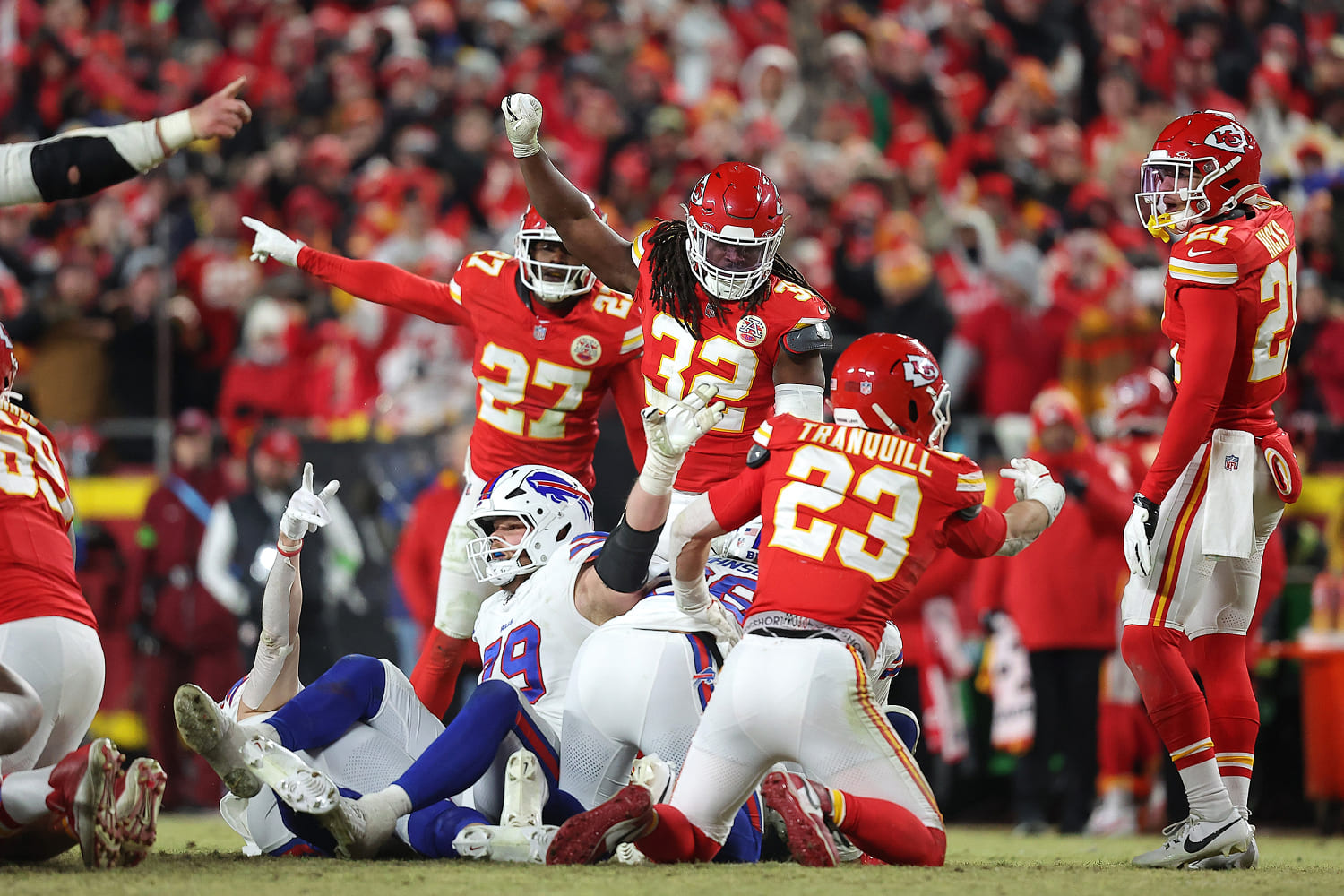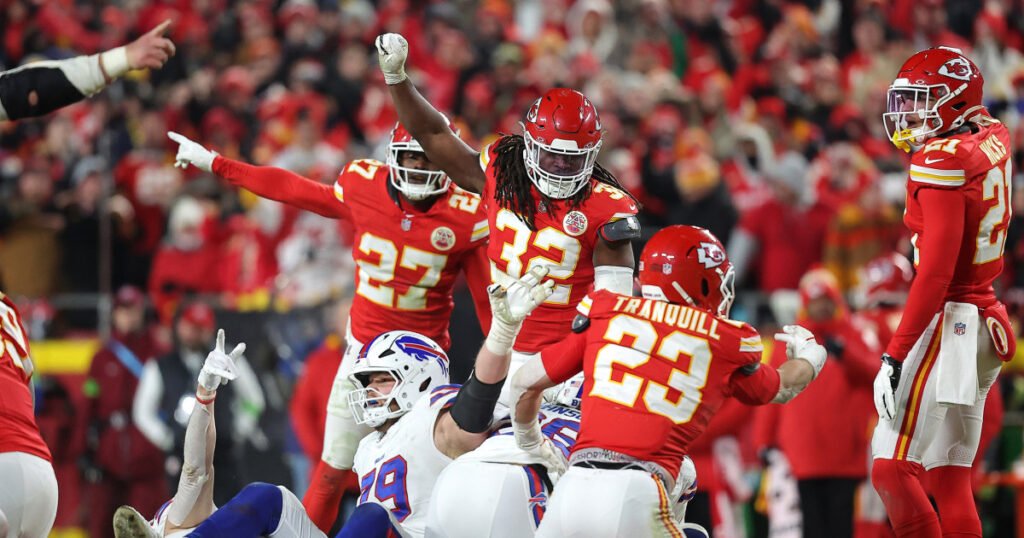
NEW ORLEANS — In the fourth quarter of the AFC championship game, the Buffalo Bills were nursing a 22-21 lead over the Kansas City Chiefs when they faced a fourth-and-1 on the Chiefs’ 41-yard line.
In what was arguably the game’s biggest play, the Bills called a quarterback sneak — which quarterback Josh Allen had converted for a first down 20 of 21 times in the 2024 season before the conference championship.
Allen, as he’d done for most of the season, took the snap and tried to find room to his left. Kansas City’s defense was waiting and stuffed him short of a first down — or at least mucked up the play enough that a replay review couldn’t determine whether Allen had reached the line to gain.
That stop was the fourth time in the game the Chiefs had rebuffed Allen on designed sneaks, holding him to 2-for-6 on such plays.
But trying to stop Allen in short yardage was only a warmup for Kansas City’s defense, which now faces the NFL’s Final Boss of quarterback sneaks: the Philadelphia Eagles’ “tush push.”
The Eagles have been running the tush push — a quarterback sneak in which Jalen Hurts gets help from running backs behind him — with great success going back to 2022, including at the Chiefs’ expense. In the teams’ previous two matchups (Super Bowl 57 and a 2023 regular season game), Philadelphia converted all nine tush pushes against Kansas City.
More Sports from NBC News
Stopping it, even once, could be pivotal for Kansas City since the Eagles run it when they need just a yard or two to keep a drive alive or score a touchdown.
“We did have some success against [Buffalo], but the Eagles are really good at it,” Chiefs outside linebackers coach Rod Wilson told NBC News. “The main thing is try to get some knock-back against those guys, try to get them pushed back. That’s the only thing we can do to stop them.”
Wilson and Chiefs assistant offensive line coach Corey Matthaei credit the Eagles’ physicality and “pad level” for their success on the tush push.
“It doesn’t matter that the whole stadium knows they’re running it,” Matthaei said. “They stay low; [Hurts] does a great job of staying low. It’s a mentality play.”
Against Buffalo, Kansas City was able to have success in part because of tendency. Allen favored running to his left on sneaks, something multiple Chiefs coaches and players mentioned after the game. Kansas City’s defense cheated in that direction in short yardage, and it paid off. (In fact, Allen’s second and final conversion on a sneak in the AFC championship game occurred when he dove over the top as opposed to running left.)
But Philadelphia, say the Chiefs, run a different, more straightforward version of the tush push, with Hurts using the leverage of his offensive line to burrow forward. And that makes it harder to defend.
“We’re going to try a couple things, but I’m not sure we have an answer for that,” Kansas City defensive coordinator Steve Spagnuolo said.
Spagnuolo has been a key component of the Chiefs’ dynasty, often scheming up unique blitzes to flummox opposing quarterbacks. But he’s not sure there’s a way to scheme against the tush push — or at least he won’t let on his plans before Sunday.
“I don’t think there’s any secret,” Spagnuolo said when he was asked how he can stop the sneak. “The secret is probably in trying to have 11 rugby players on your team who can push it the other way.”
Spagnuolo isn’t fully joking about the rugby angle, by the way. In true coaching fashion of leaving no stone unturned, Spagnuolo said he has actually had conversations with rugby coaches about how they would try to stop the tush push, which he equates to something more like a scrum than a football play.
How Kansas City defends the tush push will almost certainly be a key factor in Sunday’s game. The Chiefs, after all, learned firsthand how valuable it is to take away that offensive weapon against the Bills.
Whatever Kansas City ends up doing, defensive coordinators leaguewide will be watching as they try to come up with answers against what has been an unstoppable play. While Spagnuolo has looked to rugby coaches for advice, he hasn’t exactly done the same when he speaks with his fellow coordinators.
“When we all get together, we all go, ‘I wish they would get rid of this play,’” he said with a laugh. “We were hoping they were going to outlaw it, so we still got to deal with it.”
Source link



